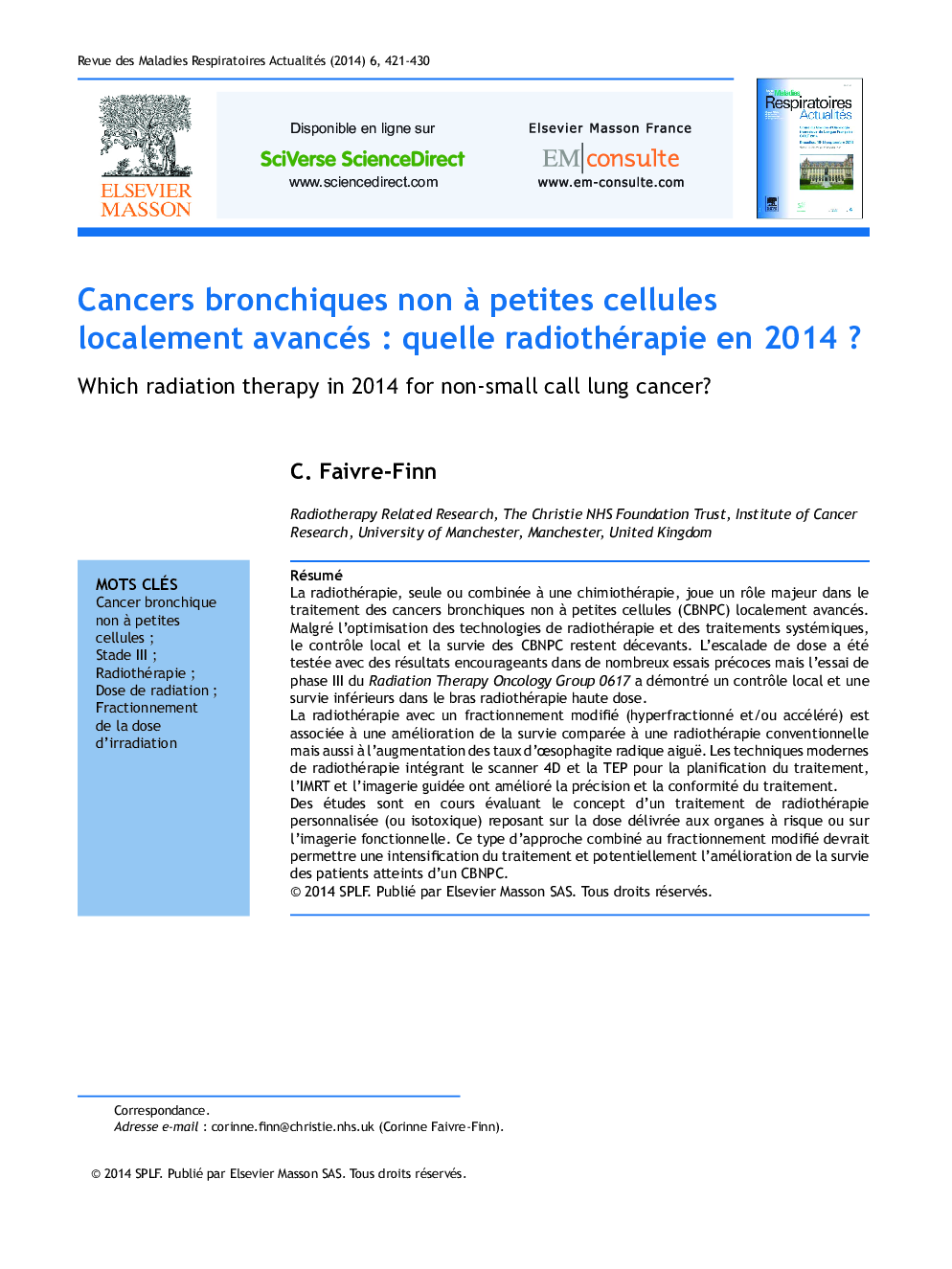| Article ID | Journal | Published Year | Pages | File Type |
|---|---|---|---|---|
| 4215552 | Revue des Maladies Respiratoires Actualités | 2014 | 10 Pages |
Abstract
Radiotherapy plays a major role in the treatment of patients with locally advanced nonsmall cell lung cancer (NSCLC), particularly since most patients are not suitable for surgery due to the extent of their disease, advanced age and multiple co-morbidities. Despite advances in local and systemic therapies local control and survival remain poor. Strategies for the intensification of radiotherapy such as dose escalation have shown encouraging results in phase I-II trials, but the outcome of the phase III Radiation Therapy Oncology Group 0617 trial was surprisingly disappointing. Hyperfractionated and/or accelerated fractionating schedules have demonstrated superior survival compared to conventional fractionation at the expense of greater oesophageal toxicity. Modern radiotherapy techniques such as the integration of 4 dimensional computed tomography for planning, intensity-modulated radiotherapy and image-guided radiotherapy have substantially enhanced the accuracy of the radiotherapy delivery through improved target conformality and incorporation of tumour respiratory motion. A number of studies are evaluating personalised radiation treatment including the concept of isotoxic radiotherapy and the boosting of the primary tumour based on functional imaging. These approaches, either alone or in combination could potentially allow for further treatment intensification and improvement of the therapeutic ratio and survival for patients with NSCLC.
Keywords
Related Topics
Health Sciences
Medicine and Dentistry
Pulmonary and Respiratory Medicine
Authors
C. Faivre-Finn,
